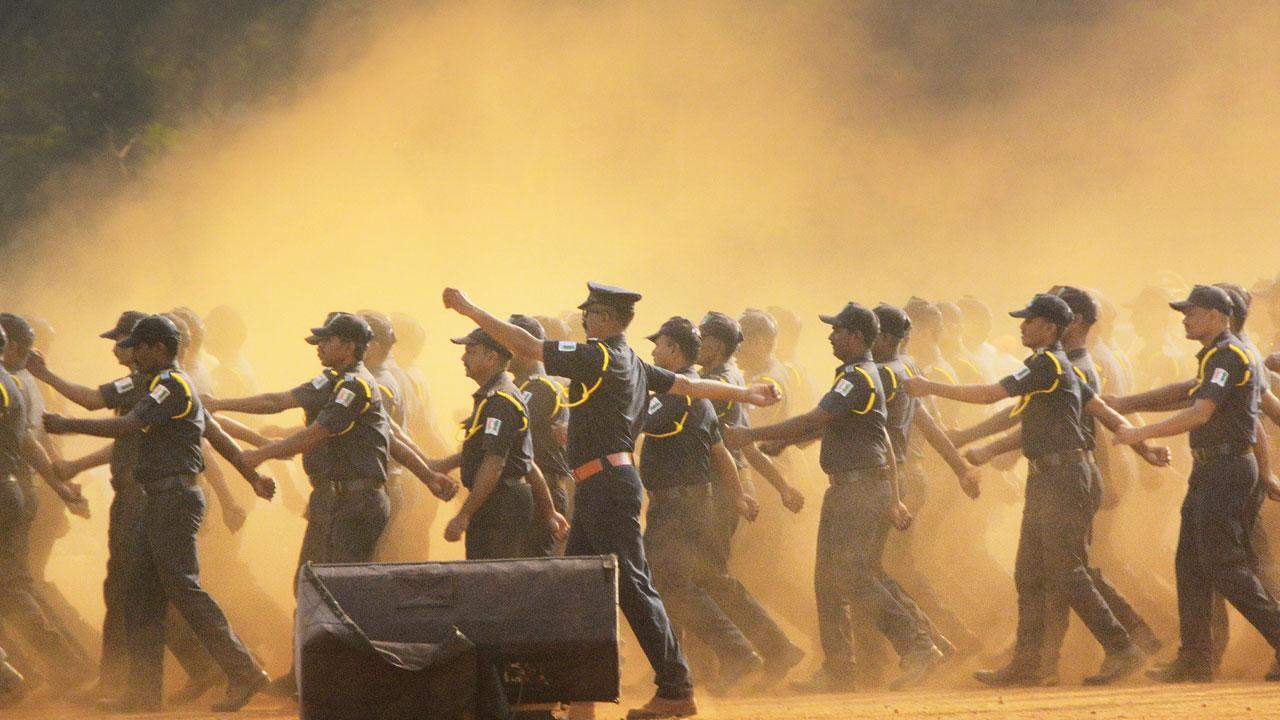Denying reports of contractual hiring for city police and officials say lack of recruitment and transfer of 4,500 personnel has apparently created a massive shortage of personnel in the state capital

The Mumbai police commissioner had made a request to get 3,000 jawans of the MSSC who can act as a supplementary force in the department. File pic/Satej Shinde
The Home Department has denied news reports on Tuesday that the Mumbai police commissionerate will hire personnel on a contractual basis. The explanation, albeit unofficial, was given because the home minister was officially expected to respond to legislators later on Tuesday or Wednesday.
ADVERTISEMENT
Officials denied the news report, saying lack of recruitment and the transfer of 4,500 personnel had created a massive human resource shortage in the state capital. Hence, the Mumbai police decided to get 3,000 jawans from the Maharashtra State Security Corporation (MSSC). The Maharashtra government gave a nod to the request of Police Commissioner Vivek Phansalkar in May. According to the top brass, the jawans will be given non-policing work in police stations and static duties which will ease the burden on police constables.
The Mumbai commissionerate has 40,623 sanctioned posts from police constable to assistant police sub-inspector. There are 10,000 constable posts vacant, and to fill them recently 7,073 people were recruited. But it will take 2 years to get this force into the Mumbai police due to training, etc. The existing constabulary faces massive work pressure. “Till the sepoys recruited through regular process join duty, the law and order of the city cannot be left unattended. And hence, this force of 3,000 from Maharashtra State Security Corporation will be used temporarily,” said a senior Home Department official.
Commissioner’s request
The Mumbai police commissioner had made a request to get 3,000 jawans of the MSSC who can act as a supplementary force in the department. On Sunday the Home Department gave the green signal to the request and a Government Resolution was released sanctioning the request. The sanctioned 3,000 jawan will be on the job for 11 months or till the time the new recruits come to the police stations. The decision drew flak from the opposition leaders claiming the move will damage the police force and might lead to a law and order situation as the jawans will be given key areas in the city.
The matter was raised in the Legislative Council, by the opposition leader Ambadas Danve and Bhai Jagtap. They demanded a debate on the matter. “The jawans at the MSSC are those tried and tested during police recruitment who weren’t short listed. Before being inducted into MSSC they get separate training, so allegations that there will be anarchy or indiscipline in the police force are not true,” said a senior police officer from Mumbai police.
S. Jayakumar, joint commissioner of police (administration), said, “The move should be looked at as a force multiplier and relief to the terrible work force shortage. The jawans will be given non-core police duties and will have guard and patrolling duties in the city. As per the GR, the appointment of the jawans is for time being till the new work force joins the Mumbai police.”
For better security
The MSSC was formed to provide better protection and security to state government and Central government offices, undertakings, employees of all such establishments, public sector undertakings in Maharashtra, vital installations, financial institutions, religious institutions, educational institutions, and like, as well as to private commercial institutes, corporate bodies, manufacturing units, etc.
The Maharashtra State Security Corporation was established vide the Maharashtra State Security Corporation Act, 2010. As per the mandate of this law, the MSSC has raised a security force, the Maharashtra Security Force. This well-trained force is actively engaged in providing security and protection to various institutions and organisations spread all over Maharashtra. Currently, the MSF has 15,000 jawans active in the state, of which 8,000 are in Mumbai.
 Subscribe today by clicking the link and stay updated with the latest news!" Click here!
Subscribe today by clicking the link and stay updated with the latest news!" Click here!







